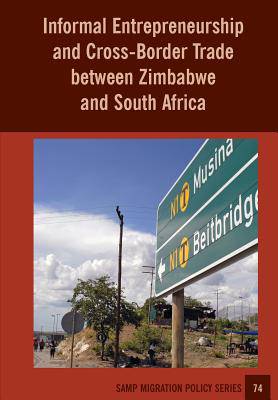
- Retrait gratuit dans votre magasin Club
- 7.000.000 titres dans notre catalogue
- Payer en toute sécurité
- Toujours un magasin près de chez vous
- Retrait gratuit dans votre magasin Club
- 7.000.0000 titres dans notre catalogue
- Payer en toute sécurité
- Toujours un magasin près de chez vous
Informal Entrepreneurship and Cross-Border Trade between Zimbabwe and South Africa
Abel Chikanda, Godfrey Tawodzera
Livre broché | Anglais
43,95 €
+ 87 points
Description
Zimbabwe has witnessed the rapid expansion of informal cross-border trading (ICBT) with neighbouring countries over the past two decades. Beginning in the mid-1990s when the country embarked on its Economic Structural Adjustment Programme (ESAP), a large number of people were forced into informal employment through worsening economic conditions and the decline in formal sector jobs. The country's post-2000 economic col-lapse resulted in the closure of many industries and created market opportunities for the further expansion of ICBT.
Spécifications
Parties prenantes
- Auteur(s) :
- Editeur:
Contenu
- Nombre de pages :
- 46
- Langue:
- Anglais
Caractéristiques
- EAN:
- 9781920596293
- Date de parution :
- 10-02-17
- Format:
- Livre broché
- Format numérique:
- Trade paperback (VS)
- Dimensions :
- 170 mm x 244 mm
- Poids :
- 90 g

Les avis
Nous publions uniquement les avis qui respectent les conditions requises. Consultez nos conditions pour les avis.






